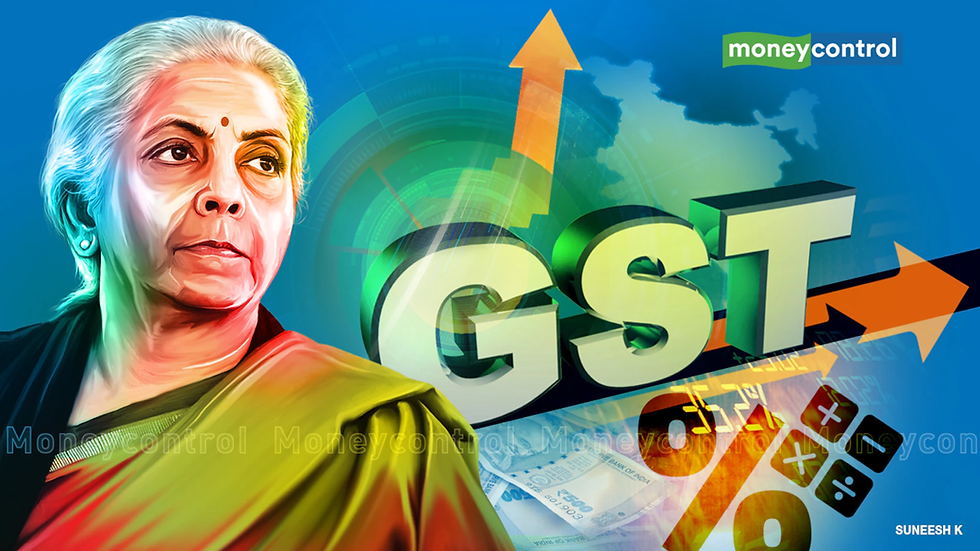SOCIAL JUSTICE: EVERYWHERE AT THE END OF TIME
- Hindu College Gazette Web Team

- Dec 18, 2023
- 4 min read
Updated: Jan 30, 2024

Image credit: istockphoto
Preface
This article highlights how social injustice tends to thrive in India despite its significant economic growth since independence. This notion aligns with Gandhi's vision of placing greater emphasis on social development over economic growth during India's struggle for independence. The emptiness felt by an individual when subjected to injustice in a socially underdeveloped environment cannot be compensated for by economic prosperity alone.
The rain it raineth on the just
And also on the unjust fella
But chiefly on the just, because
the unjust steals the just’s umbrella.
-Charles, Lord Bowen
A factory is just a country that uses its people like worker ants. The statement highlights that an economically developing nation is a factory that produces happy dolls. In India, this factory makes happy dolls, but it throws away more damaged dolls than it sells happy ones. Because the workers, socially crushed, generate excess waste during production.
It signifies that economic development is not synonymous with economic justice. Our economic prosperity is exacerbating the gulf between the privileged and the marginalized, between the affluent and the destitute. This distinction is widely accepted, but the converse holds that social development often equates to social justice. Because socially developed/developing nations do not produce happy dolls but happy workers instead.
India is among the best countries which helps in understanding the need for social justice in an economically developing country. Its History verifies the same.
Both during the Post and pre-independence era, Gandhi embodied the spirit of an anarchist, a champion of free will. When he came to India, his experiences in Champaran, Kheda, and Ahmedabad convinced him that achieving India's independence was a more attainable goal than securing social justice for its people.
When men of Congress and Swaraj were busy pondering over providing Indians economic prosperity, Gandhi was worried about the water wells that were allergic to the touch of a Dalit, the classrooms that denied the entry of an untouchable, and the doors that closed upon them. Gandhi and his wife led awareness marches for hygiene and advocated for increased female representation in politics. He opposed separate elections for those in the lower Varna as he believed it would further segregate them from the rest of the Hindu population, emphasizing the need for unity. Today his face is in the pockets of every rich and poor as he’s printed on the currency.
Today, the glorification of India is the glorification of its people but how do we expect the starved Indian, awaiting justice to be happy about this glory? The outskirts of metropolitan cities resemble neglected corners of a gleaming trophy, superficially touched up to conceal their true state.
We have first raised a dust and then complain we cannot see.
-George Berkeley
Widespread sorrow among the underprivileged stems from our flawed methods of pursuing a just utopia. The train that runs towards this utopia, runs on the tracks of lost justice.
This train has many compartments. The first (engine) is the government that is trying. It carries the load of moving its nation forward towards social justice. But the load slows it down and the passengers blame it for wasting their valuable resources (tax and time).
The remaining compartments are occupied by the passengers (citizens) themselves, categorized into classes A, B, and C, reflecting their social hierarchy. Frustrated by the train's sluggish pace, passengers often resort to seizing resources from one another or even contemplating jumping off the train. In the lower classes, B and C, many resort to unfair means to secure resources. This relentless struggle for limited resources results in a grossly unequal battle where the vulnerable and less privileged are easily overwhelmed.
While money can be utilized to enhance technology and upgrade the train's engine, it falls short of eradicating deep-seated societal inequalities. It has the potential to exacerbate such disparities. However, the scenario could change if a fair and equitable distribution of resources is put into effect. The equitable distribution of income ensures that opportunities are evenly dispersed, preventing the perpetuation of social injustice. Ultimately, economic justice can pave the way for social justice.
The journey toward achieving social justice may be gradual, but it remains an attainable goal. In India, this pursuit was initiated during the era of Mahatma Gandhi and continues to this day. Those championing this cause are the unsung heroes of our society, tirelessly working to bring about a more just and equitable future. There will be social justice for the marginalized farmers, the sewage cleaners, the ragpickers, the unemployed, and the man who worries about them all.
In the vast garden of humanity, the unsung heroes sow the seeds of equality. Their tales remain unspoken, lost in the silence of obscurity. But as these seeds take root, their subtle influence glows like a flickering candle in the enduring darkness of their uncelebrated realms. As the candle's flame dances its final waltz and the sapling unfolds its last leaf, their legacy reverberates everywhere at the end of time.

Image credit: FORWARD Press
By: Shubhangi Yadav
Shubhangi Yadav is a first-year Economics student at Hindu College, University of Delhi. She is not only a published anthology author but also a passionate polity-theology enthusiast. Her primary focus centers on delving into the intricacies of behavioural economics.






Comments